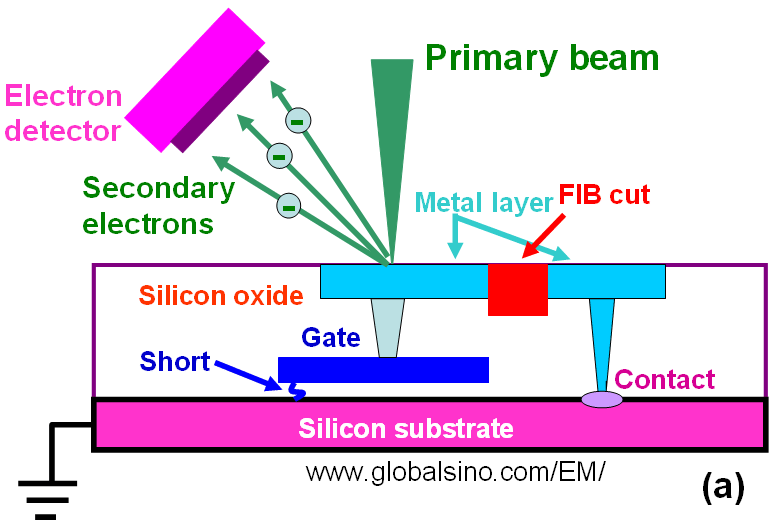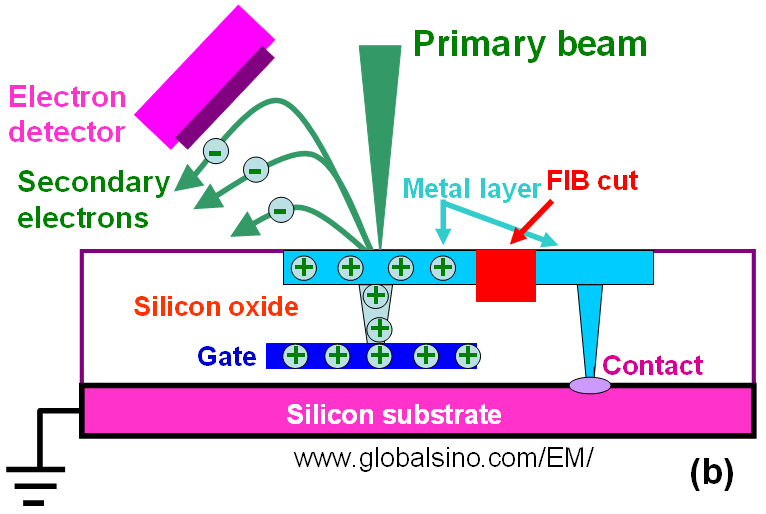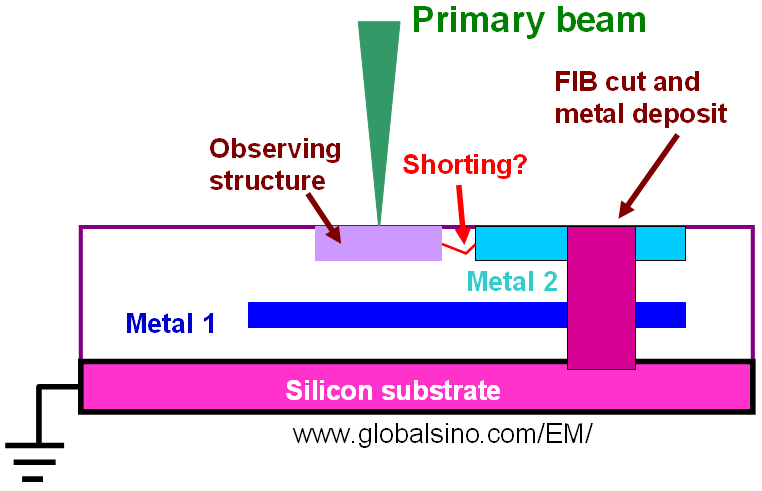=================================================================================
Passive voltage contrast (PVC) can be applied to investigate whether there is a short in IC devices. In this case, one can isolate a structure from the other parts by cutting the electrical connections. For instance, in Figure 3858a, to verify whether there is a short in the gate oxide, the connection between the gate and metal line is cut. The structure appears bright if there is an unwanted electrical short in the gate oxide (Figure 3858a (a)), while the structure appears dark (because the structure is positively charged) if there is no short (Figure 3858a (b)).
 
Figure 3858a. Investigation of short failure in IC device detected by passive voltage contrast
(PVC): (a) Electrical short in the gate oxide and (b) No short.
On the other hand, the same contrast phenomenon can also be applied to investigate whether a structure is correctly grounded or not. If the structure is grounded well the structure appears bright, while it appears dark if the structure is not grounded.
More advanced analysis can be performed in combination PVC imaging with FIB-cutting and metal deposition. Figure 3858b shows a metal plug was deposited between metal 2 and substrate. This metal plug builds the grounding from substrate to metal 2. Therefore, we can know whether there is an electrical short between the observing structure and metal 2. Note that in this application we need to ensure the metal plug correctly connects the metal 2 and silicon substrate.

Figure 3858b. Advanced application of PVC to investigation of short failure in IC devices.
|


